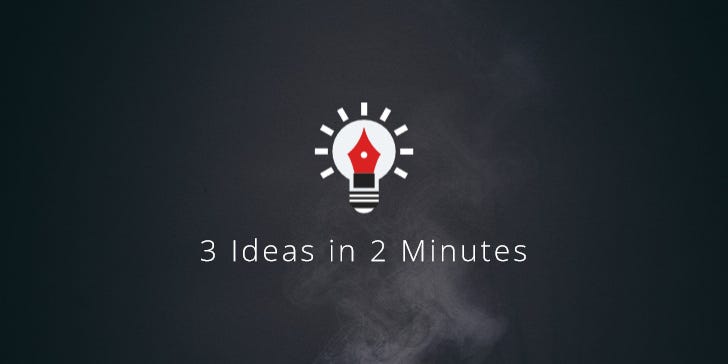#219: Dancing with Uncertainty, the Fallacy of Equal Knowledge & the Ignorance Paradox
3 Ideas in 2 Minutes on Dealing with Ignorance
I. Dancing with Uncertainty
Essayist Nassim Nicholas Taleb sees probability not as mere calculation, but as a way of dancing with uncertainty. It’s an acknowledgment of our ignorance and a tool for navigating the unpredictable nature of life.
Probability is not a mere computation of odds on the dice or more complicated variants; it is the acceptance of the lack of certainty in our knowledge and the development of methods for dealing with our ignorance.
—Nassim Nicholas Taleb, Fooled by Randomness
II. Fallacy of Equal Knowledge
If only others had the same information I have, they’d agree with me.
The Fallacy of Equal Knowledge is the mistaken belief that if everyone had access to the same information, they would all naturally arrive at the same conclusion. Usually yours. It’s an assumption that smooths away all the messy aspects of human thought, such as values, priorities and experiences. However, this makes disagreements appear to be nothing more than information gaps. In reality, people can hold the same facts in their hands and still walk away with completely different understandings.
So disagreements are not always rooted in ignorance or misinformation. People interpret evidence through their own lenses. And those lenses can’t be swapped out as easily as a pair of glasses. Believing that knowledge alone will align everyone’s perspectives overlooks the complexity of how humans process the world. That’s why slapping facts in people’s faces doesn’t magically make them change their minds, and approaches such as Tactical Empathy are so powerful.
Source: The Certainty Trap by Ilana Redstone, via KPAXS
III. Ignorance Paradox
With the Ignorance Paradox, Alan Watts reminds us that true wisdom doesn’t come from clinging to answers but from marvelling at the questions:
The greater the scientist, the more he is impressed with his ignorance of reality, and the more he realizes that his laws and labels, descriptions and definitions, are the products of his own thought. They help him to use the world for purposes of his own devising rather than understand and explain it.
—Alan Watts
🐘
Have a great week,
Chris
themindcollection.com

